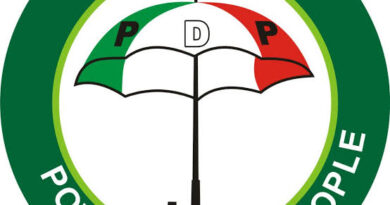FG Faults Transparency International Rating
The Federal Government has said the recent grading of Nigeria by Transparency International does not reflect the great stride the nation has attained in the present administration.
The Minister of Information and Culture Lai Mohammed stated this Sunday. He noted that Transparency International Corruption Perception Index, TI-CPI.

Mohammed stated that the anti-corruption plan, which places a significant priority on means to prevent while building integrity systems, remains on course.
With the enactment of several reforms, particularly in the Ease of Doing Business, the Minister is hopeful the country’s corruption perception and other relevant assessments will yield positive results in the next 12 to 24 months.
He said the emphasis on preventive mechanisms is in response to various local and international reviews and evaluations that Nigeria has gone through, including those from the United Nations Convention Against Corruption (UNCAC) and even from the TI-CPI.
The Minister stated this: “In response to these evaluations, several significant policies have been instituted to enhance transparency and accountability, and prevent corruption.
“Even in the middle of the COVID-19 pandemic, a number of key transparency and accountability policies were developed and are currently being implemented,” the Minister said.
He also revealed that after analyzing the 2020 TI-CPI Nigeria rating, the Federal Government investigates issues and discrepancies observed in the rating process, including some data sources in which Nigeria’s scores have remained flat over the past ten years, reflecting no improvement, decline, or fluctuation.
“This is very improbable given the nature of the behavior of variables, which are normally influenced by various factors (which is the reason they are called ‘variables’).
“In this case, the corruption scores would have been affected by changes in the size and structure of the public sector over the past ten years, changes in policies and personnel and systems over the period including, for instance, process automation, etc.
“There is, therefore, a need to verify that there is no transposition of figures from year to year due to absence of current data,” the Minister said.
“There is a need to understand why these variations occur, and consequently the robustness of the methodology and validity of data,” Mohammed said; there are missing assessments for Nigeria in the data entries where the country has performed well in previous CPI calculations like the African Development Bank Country Policy and Institutional Assessment.
“There is a need to understand why scores for this assessment have not been recorded for Nigeria for the past two years, which has had the effect of reducing Nigeria’s cumulative score and ranking relative to countries with those scores included in their CPI for both years,” he said.




